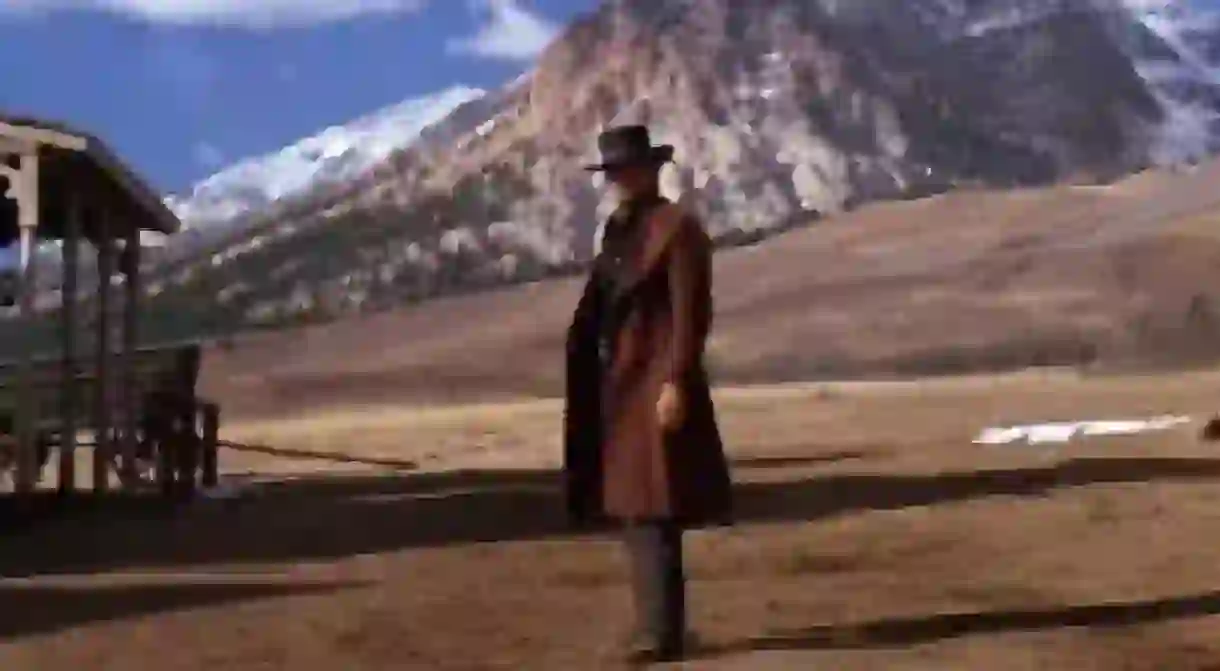The Best Movies by Clint Eastwood You Should Watch

As one of Hollywood’s most masculine figures, Clint Eastwood has become one of the greatest actor-directors to have ever entered the film industry, known for his purse-lipped stoicism on screen, and for his visceral movies; stories whose courage, darkness and simplicity work to reveal deeper aspects of human nature. Here are some of his finest you have to see.

Pale Rider (1985)
Already known as Hollywood’s silent, gun-slinging hero, Eastwood’s 11th directed feature length film, Pale Rider, serves as an example of the actor-director’s mastery of the western movie genre. Clint Eastwood, who plays the enigmatic Preacher, takes on the defence of a small town against the machinations of a greedy mining company and its calculating bosses. Aside from the Preacher’s revolver, subtlety is the director’s most forceful tool here, employing sparse shots of Eastwood as he moves like a ghost across the screen and through the ambiguous, psuedo-religious undercurrent of the narrative. “Behold the pale horse…”
Play Misty for Me (1971)
As Eastwood’s directing debut, Play Misty for Me delivers a tightly wound, unnerving psychological thriller. Eastwood stars as Dave Garver, a small town radio jocky who develops a relationship with one of his frequent late-night listeners, Evelyn Draper. As their relationship grows, so does Evelyn’s neurosis, so much so that she becomes maniacal and violent, until she meets her theatrical end in a crescendo of tension.
American Sniper (2014)
After the legendary story of American Navy Seal Chris Kyle – the most deadly American sniper to date – American Sniper tells the complicated story of Kyle on the battlefield and at home, where his haunting experiences with women and children on the ground in Iraq nearly consume him as a father and a man. Eastwood catches viewers off-guard with his startling battlefield scenes, juxtaposing a father’s ethics with those of a dutiful soldier. Bradley Cooper plays Kyle, and does so with nigh on perfect balancing of his dichotomous moral position.
Letters from Iwo Jima (2006)
Letters from Iwo Jima, Eastwood’s 27th feature film, begins with a sequence focussing on the battle of Iwo Jima; presenting it in a dark and ethereal light, without the haunting figures of soldiers. The film is primarily told by the side of the Japanese, whose preparations for the American invasion of the island take up much of the film. Despite its violent scenes, Letters from Iwo Jima serves as a lesson in nationalistic propaganda, and a reminder of the ugliness and repressed fatalism of a fighting force on the verge of death.
Gran Torino (2008)
Eastwood proves his longevity in 2008’s Gran Torino, as both a director and leading actor in his second highest grossing film to date. Gran Torino tells the story of Walt Kowalski, an angry, retired Korean war veteran and Detroit automobile assembly line worker, and his Hmong-American neighbors, whose son teeters on becoming the prey of local Hmong-American gangsters. As he gets ever closer to the neighbor boy, Walt begins to lose much of his hatred toward the Hmong, and becomes protective of the family. Despite the problematic undertones of racism picked up by many critics, the movie is a fine examination of the die hard nature of mislead belief and conviction.
Million Dollar Baby (2004)
Given the prestigious title of best movie of the year in 2004 by the late film critic Roger Ebert, Million Dollar Baby tells the story of a female boxer and her quest to find self-worth. Eastwood plays Frankie, an owner of a boxing gym in Los Angeles, and his lifelong movie co-star, Morgan Freeman, plays Scrap, Frankie’s former title bout contender and current confidant in the present. Actress Hilary Swank performs her role as Maggie with a still clarity, and with a telling ferocity lying underneath her every movement. The film delivers in its severity, where the motivations of the characters are deeply seeded, and their actions, wholly effectual.
Unforgiven (1992)
Unforgiven (1992), Eastwood’s Oscar-winning resurgence of the classic cinematic western of his past, tells the story of William Munny, a hog farmer with a gun-slinging yesteryear who returns to the bounty hunting life for one last job. Along with Morgan Freeman, who plays Ned Logan, Munny’s partner, and Sheriff Little Bill Daggett, the corrupt law enforcer of Big Whiskey, Wyoming, the film maintains its style in classical form, and beckons Eastwood out of his retired shell into the fearful, sinister gun barrels of his acting golden age.
The Outlaw Josey Wales (1976)
The Outlaw Josey Wales tells of a vengeful, southern fugitive, made to run westward after he kills the Yankee troops that killed his comrades without cause. Amidst his solitary travels, Wales meets other drifters, including an Indian played by Chief Dan George, who, like Wales, is being pursued by the military. Eastwood’s deftness with pistols is at its finest in this film, as are his signature pauses and inexhaustible sense of self-righteousness.
High Plains Drifter (1973)
Produced by Eastwood’s long time collaborators, Sergio Leone and Don Siegel, High Plains Drifter illustrates the actor-director’s almost super human status as a western hero. As a stranger who stumbles upon a small western town, he eventually wins the trust of the local leadership. As its sole protector, conflict ensues in the town until its eventual ruin, causing Eastwood’s stranger to exit just in the same manner he came: slowly, as a man immune to death and with vengeance on the tip of his gun barrel.













